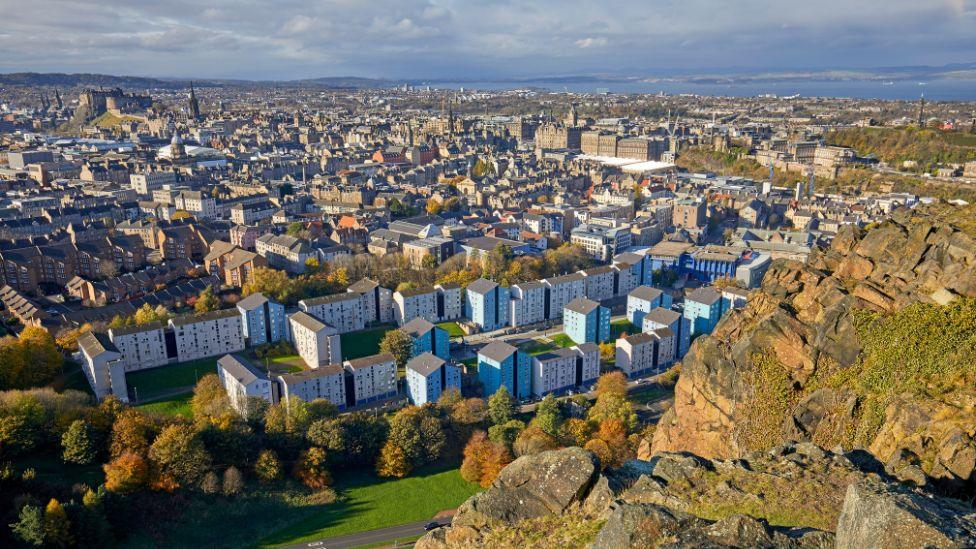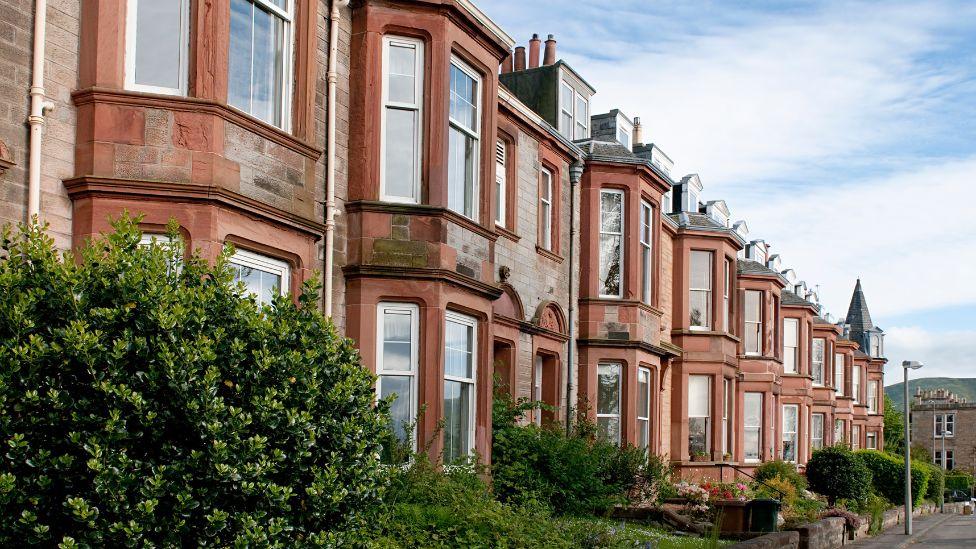Edinburgh Council amends 'unlawful' short-term lets plan
- Published

The local authority scheme is designed to tackle the city's housing shortage
Edinburgh Council has amended a licencing scheme for Airbnb-style properties after parts of the policy were ruled to be unlawful.
Provisions that would have made it more difficult for entire homes to be used as holiday lets have been scrapped following a court ruling in June.
The plan is designed to help tackle the capital's affordable housing shortage.
But opponents said "fundamental issues" remained and accused the council of attempting to "shut down the sector".
They have threatened legal action against the latest iteration of the scheme.
In June's Court of Session case, which came just four months before the scheme was due to launch, Lord Braid ruled as unlawful a presumption against allowing entire tenement flats to be used for short-term letting unless their owners could demonstrate why they should be exempt.
He said a similar presumption against granting temporary licences for secondary lets - any entire property used for holiday letting - was also unlawful, as well as a rule requiring the same type of short-term lets (STLs) to have "a suitable floor covering such as a carpet" in bedrooms, living rooms and hallways.
Operators and landlords said the council should only knock back applications if there are safety concerns or if the landlord has been shown to be irresponsible.
All unlawful elements of the policy have now been removed by the council and a new version has been published online.
STL operators must apply for a licence by 1 October if they want to operate while their application is considered, with people who list whole properties on sites such as Airbnb also required to apply for planning permission.
Renting out a room in your own home, or letting your home while on holiday, would still be allowed.

Edinburgh City Council stressed that the requirement to obtain an STL licence "is unaffected by the court's judgement" and that there have been no changes in relation to home letting, home sharing or temporary exemptions.
But the Association of Scottish Self Caterers, which has equated the new rules to a "de-facto ban on short-term lets in Edinburgh", said a second judicial review is now planned focusing on "the retrospectivity of applying planning policies".
The four petitioners who tabled June's judicial review, crowdfunding a record £300,000, welcomed the changes but said it remained unclear if all of Lord Braid's recommendations would be carried forward.
They raised "major fundamental issues and concerns with the way City of Edinburgh Council is using a combination of planning and licensing policies to shut down the sector".
The petitioners objected to the requirement for secondary let hosts to obtain planning permission or a certificate of lawfulness if the property has been used for holiday letting for more than 10 years.
The said planning status in such cases can be demonstrated through a certificate of lawfulness if requested, but that this should not be a condition of applying for a licence.
'Confusion'
"This confusion is the main reason why so few responsible and well run operators have applied and remain reluctant to apply for a licence following the outcome of the judicial review," the petitioners said in a statement.
They added: "Since 1 October 2022 only a handful of properties have been given planning permission (as opposed to a certificate of lawfulness where CEC has no choice if operating over 10 years).
"It is inevitable that many more legal challenges will take place if CEC continues to grant only a handful of secondary let licences through a combination of planning and licensing measures, particularly for businesses that commenced operations before the control area was designated."
The council wants to introduce the licensing scheme in response to concerns about the high number of short-term lets in the capital - particularly in the city centre.
It argues that the lettings have exacerbated housing shortages and fuelled anti-social behaviour.
The proposals were approved by the council's planning committee last year after 88% of the 5,600 people who responded to a consultation on the proposals supported the introduction of the licensing scheme.
Reporting by local democracy journalist Donald Turvill.